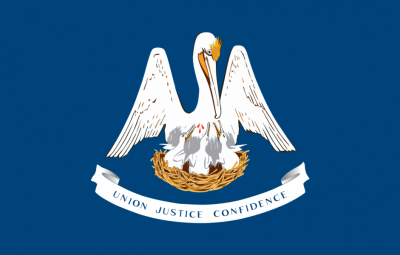Louisiana

Louisiana has a criminal right of publicity statute that protects deceased soldiers. Prior to 2022, the state only recognized a privacy-based tort of misappropriation. In 2022, the state passed the sweeping Allen Toussaint Legacy Act which extends a statutory right of publicity to the state, including postmortem rights.
Statute
YES – Deceased soldier only.
Common Law - Right of Publicity
NO
Frigon v. Universal Pictures, 255 So.3d 591 (La. App. 2018), writ denied, 262 So.3d 896 (La. 2019)
Common Law - Right of Privacy-Appropriation Tort
YES
A 1905 decision by the Louisiana Supreme Court recognized a right to privacy in that state and used it as the basis for an injunction against including the plaintiff’s photograph in the rogues’ gallery prior to conviction. The court noted that its decision did not address the question of whether the use of a person’s likeness in other contexts, particularly of young women in advertising, was a violation of the right of privacy. Itzkovitch v. Whitaker, 115 La. 479 (La. 1905).
Jaubert v. Crowley Post-Signal, Inc. 375 So. 2d 1386 (La. 1979)
Tatum v. New Orleans Aviation Bd., 102 So. 3d 144 (La. Ct. App. 2012)
Post-Mortem Right
YES
The 2022 law provides up to 50 years of postmortem protection. The criminal right of publicity statute for deceased soldiers provides postmortem rights exclusively for soldiers. This postmortem right is not limited in duration.
Claims under the state’s misappropriation tort, however, have thus far been held not to survive death.
La. Rev. Stat. Ann. Section 51:470.3
Frigon v. Universal Pictures, 255 So.3d 591 (La. App. 2018), writ denied 262 So.3d 896 (La. 2019)
Tatum v. New Orleans Aviation Bd., 102 So. 3d 144 (La. Ct. App. 2012)
Limits on Right
Does the law require the plaintiff or identity-holder to be a celebrity or have a commercially valuable identity?
NO
Does the law protect persona?
UNCLEAR
The statute for soldiers expressly limits liability to circumstances in which the “name, portrait, or picture” of a deceased soldier is used.
Is Liability Limited to Uses on Commercial Advertising or Commercial Speech?
NO
Statutory Defenses
The statute providing post-mortem rights for deceased soldiers does not provide any explicit defenses.
First Amendment Analysis
Louisiana uses a balancing test for weighing privacy interests against speech interests. Louisiana sits in the Fifth Circuit Court of Appeals which has held that the First Amendment protects against misappropriation claims in the context of biographical works, at least where the information was in the public domain, the plaintiff was a public figure and the use was not a “disguised commercial advertisement.”
Plaquemines Parish Comm’n Council v. Delta Dev. Co., 472 So. 2d 560 (La. 1985).
Matthews v. Wozencraft, 15 F.3d 432 (5th Cir. 1994).
Other Commentary
An appellate court in Louisiana has held that consent to the use of one’s name or likeness is time-limited. In the context of a photograph, the court held that ten years after consent was given continued consent could no longer be presumed.
McAndrews v. Roy, 131 So. 2d 256 (La. Ct. App. 1961).
Last updated on July 18th, 2024
